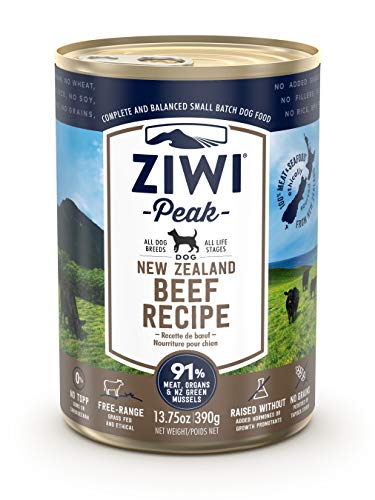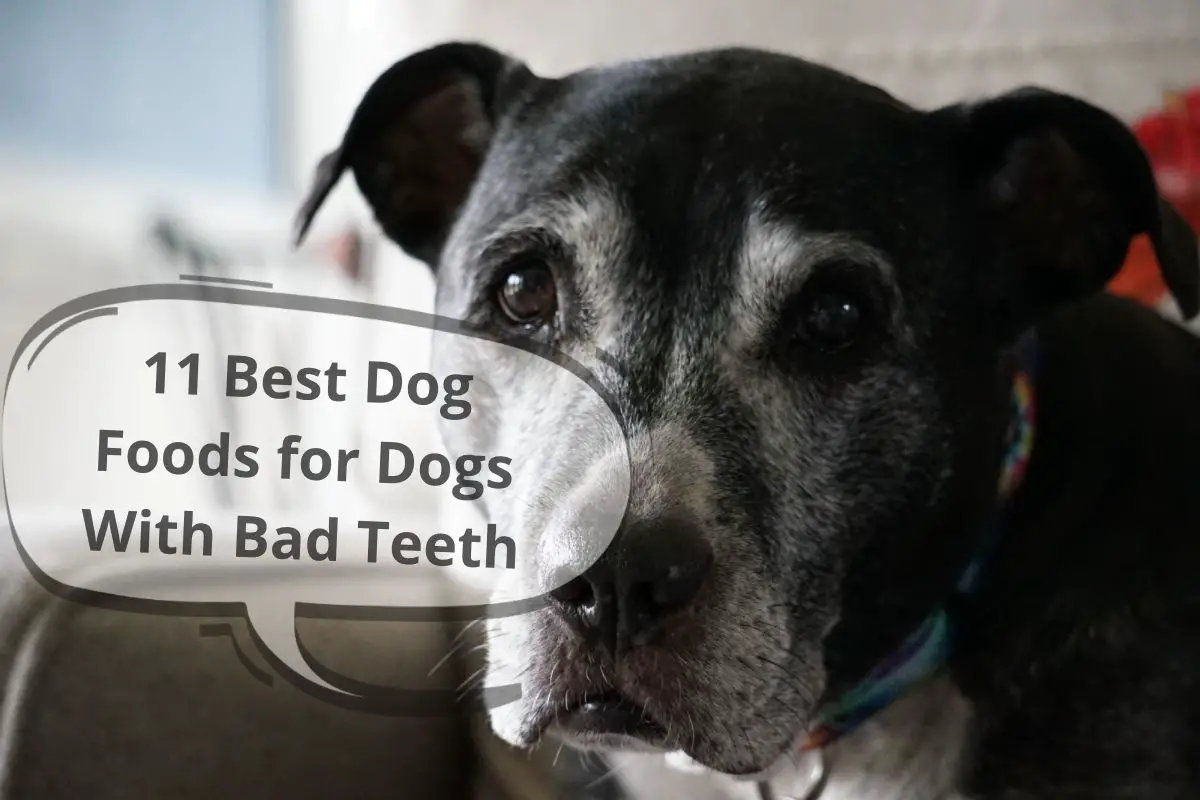As pet parents, we want the best for our dogs, including ensuring that our dogs have a healthy weight. If your dog has just had surgery, an illness, or has a fast metabolism, you may be trying to help your dog pack on a few pounds. You can do several things to help, including feeding your dog the right food, but will eggs help?
Eggs can help your dog gain weight because they’re calorie-rich foods (70-80 calories apiece). They are also an excellent protein source (6 grams), which helps with weight gain and your dog’s general health. Most dogs also love the taste, making them a great and easy addition to their diet.
Before giving your dog eggs to eat, it is essential to understand how eggs can impact your dog’s overall health. This article explores the reason eggs can help with your dog’s weight gain. Using expert opinions and research, we will also consider the best way to include eggs in your dog’s diet, as well as other things you can do to help your dog healthily gain weight.
How Do Eggs Help My Dogs Gain Weight?
PetMD suggests that mild to moderately underweight dogs should eat a diet of mainly fat and protein. Eggs will easily fit in with these recommendations – a large egg contains 5 grams of fat and 6 grams of protein. Therefore, eating eggs can help your dog put on some weight.
Dogs, like humans, rely on protein to power up their bodies. Proteins consist of smaller components called amino acids. While dogs’ bodies produce all but a few amino acids naturally, all the remaining amino acids they need are conveniently in eggs!
As well as being rich in protein, eggs are also high in calories, with each containing between 70-80 calories. When your dog eats an egg, he or she will absorb these calories quickly, which will help your dog put on weight.
Eggs also contain Vitamin A, vitamin D, vitamin E, fatty acids, and folic acid, all of which contribute to a dog’s health in various ways.
Should I Feed My Dog Cooked or Raw Eggs?
Have you decided that it may be a good idea to feed your dog eggs? Then, you may now be wondering how you should add eggs to your dog’s diet.
Why Dogs Shouldn’t Eat Raw Eggs
Raw eggs would have been snacks for dogs in the wild and the ancestors of our domestic dogs. However, when we domesticated dogs and began feeding them cooked food, their digestive abilities changed slightly. According to experts, you should not give your dogs raw eggs because:
- Raw eggs can carry salmonella, a type of bacteria that may cause lethargy, fever, vomiting, and diarrhea. If a dog contracts salmonella, it can also expose you — the owner — to this bacteria.
- Raw eggs contain avidin, an enzyme that stops biotin from being absorbed in the body. Dogs need biotin to help with digestion, so feeding your dog raw eggs may prevent them from getting the biotin he or she needs.
Why Cooked Eggs Are Better for Dogs
It’s better to give your dog cooked eggs. Jan Dempsey, a nutritionist at Purina, recommends that you follow a ‘10% rule’ – give your dog enough eggs to make up 10% of their daily calorie needs. So, if you have a dog that needs 2000 calories a day, you can give your dog up to 3 eggs.
There’s a variety of ways you can prepare the eggs for your pup:
- Scramble the eggs and mix them in with your dog’s regular kibble.
- Boil an egg, break it into pieces and give it to your dog as a snack.
- Poach the egg, break it into pieces and give it to your dog as a training treat.
- Fried eggs have to be cooked using oil or butter, so they’re not the best option for your dog. However, if you would like to give him a fried egg occasionally, fry it in a non-stick pan so that it absorbs as little of the oil as possible.
You can give your dog both the egg white and the yolk and occasionally provide your dog eggshells, as they’re a great source of calcium. Bake the eggshells for 10-15 minutes and then grind them to create a fine powder. Add half a teaspoon of this powder to your dog’s daily meal once a fortnight.
Try to buy eggs that are from local farms. If that’s not possible, look for organic, free-range eggs.
Safety Protocols
After introducing eggs to your dog, closely monitor any impacts this new addition may have. Some dogs can be allergic to eggs – they may cause itchiness and other skin issues around the ears and paws. Eggs may also upset your dog’s digestive system, causing vomiting or diarrhea.
If you suspect your dog is having an allergic reaction to eggs, consult with your vet and stop feeding your dog eggs.
Other Ways To Help Your Dog Gain Weight
As well as infusing eggs into your dog’s diet, there are various other things you can do to help with weight gain. Let’s explore a few egg alternatives.
Feed Your Dog These Foods
One reason that eggs help dogs gain weight is that they are calorie-rich, but they’re not the only high-calorie food out there. Other calorie-rich foods include:
- Full fat cottage cheese
- Lean meat (such as shredded chicken)
- Quinoa
- Peanut butter (ensure that the peanut butter you are feeding your dog doesn’t contain xylitol)
Several dog food mixes have a high amount of high-quality calories and nutrients. Some of the better options include:
- Purina Pro Plan Sport, Energy & Vitality Support: This carefully crafted mix has 30% protein and 20% fat to help your dog build and maintain lean muscle.
- Bully Max 30/20 High-Performance Dog Food: This dog food is also created with 30% protein and 20% fat and is suitable for all breeds of dogs across all ages.
- ZiwiPeak Wet Beef Recipe for Dogs: This is a wet food that is great for picky eaters. It also includes a mix of protein-rich beef with 3% of New Zealand green mussels that are a great source of nutrients.
- Blue Buffalo – Wilderness Rocky Mountain Recipe Red Meant Dinner: This food has been formulated especially for aging dogs that need to put on some weight, filled with various proteins, including beef, beef broth, lamb, and turkey.
Ask Your Vet for Some Supplements
If you don’t want to change your dog’s diet completely, another option is to add some supplements to his or her food. It’s best to consult with your vet for supplement recommendations that can boost your dog’s weight.
Track the Changes in Your Dog’s Body
If you are adapting your dog’s diet or lifestyle, it is essential to keep track of the changes. Monitor any additions or changes to your dog’s food and record whether your dog had any reactions to the change. Things to look out for include:
- Increased bouts of energy
- Symptoms of gastrointestinal disturbance such as vomiting, lethargy, diarrhea
- Disinterest in eating
These records will help you assess what is helping and what is hindering your dog’s weight gain.
Continuously monitor not just your dog’s weight but their muscle weight and structure. After all, you don’t want your dog’s weight gain to be pure fat. While you can get your dog’s muscle weight by visiting the vet, you will be able to feel changes. Feel their hips, ribs, and back – if they feel more defined, they are likely putting on more muscle weight.
Exercise Regularly
Exercising may seem counterproductive if you want your dog to put on weight. However, if your dog gets regular bouts of high-quality exercise, he or she will not put on fat but rather develop defined muscles.
Exercise will also help increase your dog’s appetite. High-quality exercise may include:
- Running up and down hills
- Playing tug of war
- Navigating hurdles and other obstacles
- Swimming or paddling in shallow water
Maintain Your Dog’s Weight
Once your dog has reached the desired weight, it is your job to help him or her maintain it. Don’t change their diet drastically, but instead gradually reduce the amount of high protein or high-calorie food available. Continue to monitor your pet’s weight and behavior and adapt diets or routines accordingly.
Conclusion
Eggs can definitely help your dog gain weight because they contain a significant amount of calories and are also rich in protein. They are also an excellent source of other nutrients, making them the perfect addition to your dog’s diet.
If you have tried multiple ways to help your dog gain weight but are still not seeing results, it may be time to consult with a vet. The vet will be able to assess your dog’s overall health, find the causes of your dog’s low weight and recommend medication or lifestyle choices that will help.
Sources
- American Kennel Club: Can dogs eat eggs?
- American Kennel Club: Can dogs eat peanut butter?
- BlueBuffalo: Senior Red Meat Recipe
- BullyMax: High Performance Dog Food
- Dogtipper: how to make eggshell calcium for your dogs
- Dog Lovers Digest: The 14 best foods for dog weight gain
- Little Dog Tips: How to put weight on a skinny dog
- PetMD: Caring for an emancipated dog
- Purina: Can dogs eat eggs?
- Purina: How to help your dogs gain weight
- Vet Info: What’s the best food for weight gain
- WikiHow: Get dogs to a healthy weight
- ZiwiPets: ZiwiPeak Wet Beef Recipe







